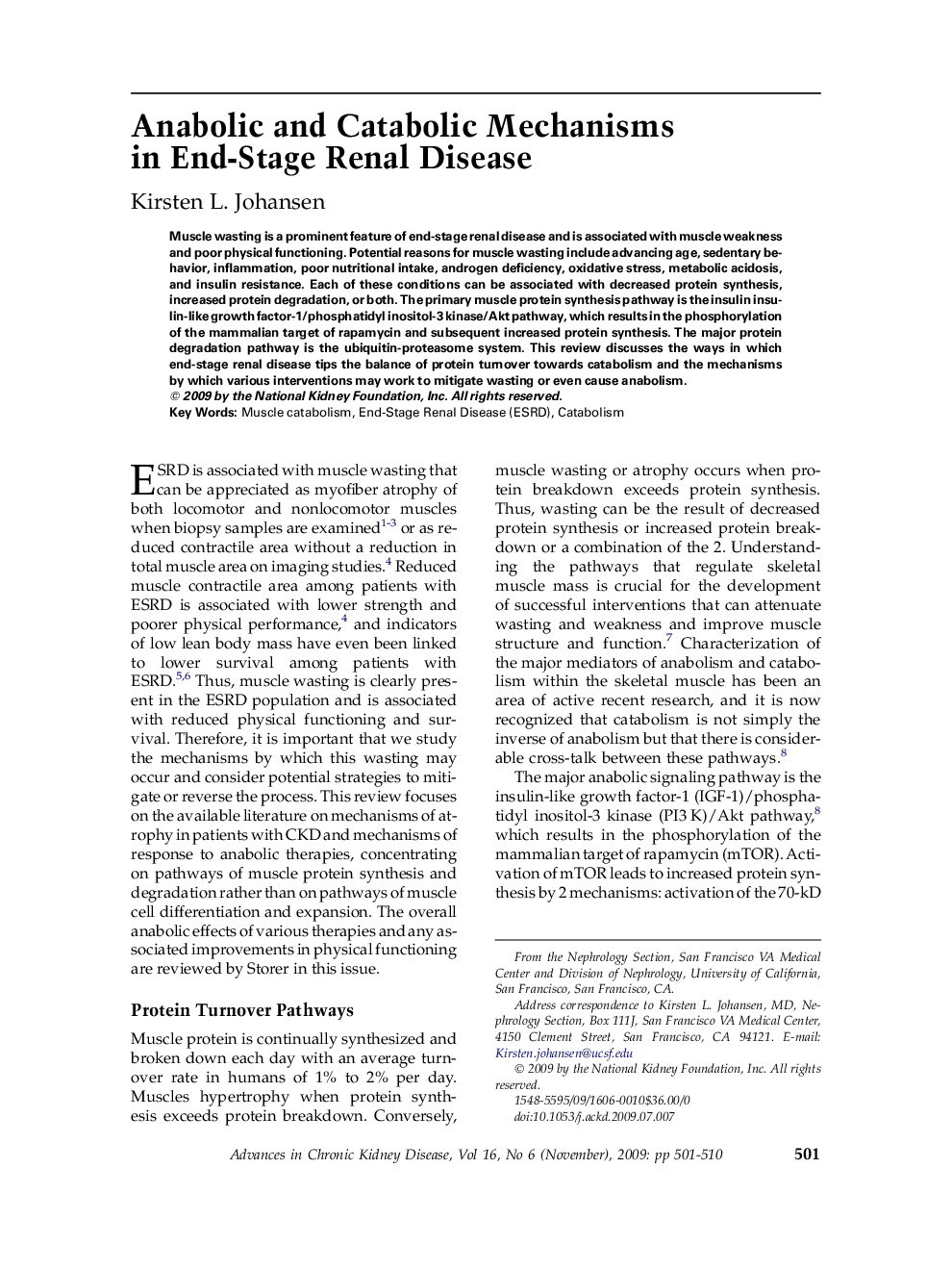| کد مقاله | کد نشریه | سال انتشار | مقاله انگلیسی | نسخه تمام متن |
|---|---|---|---|---|
| 3847233 | 1248370 | 2009 | 10 صفحه PDF | دانلود رایگان |
عنوان انگلیسی مقاله ISI
Anabolic and Catabolic Mechanisms in End-Stage Renal Disease
دانلود مقاله + سفارش ترجمه
دانلود مقاله ISI انگلیسی
رایگان برای ایرانیان
کلمات کلیدی
موضوعات مرتبط
علوم پزشکی و سلامت
پزشکی و دندانپزشکی
بیماریهای کلیوی
پیش نمایش صفحه اول مقاله

چکیده انگلیسی
Muscle wasting is a prominent feature of end-stage renal disease and is associated with muscle weakness and poor physical functioning. Potential reasons for muscle wasting include advancing age, sedentary behavior, inflammation, poor nutritional intake, androgen deficiency, oxidative stress, metabolic acidosis, and insulin resistance. Each of these conditions can be associated with decreased protein synthesis, increased protein degradation, or both. The primary muscle protein synthesis pathway is the insulin insulin-like growth factor-1/phosphatidyl inositol-3 kinase/Akt pathway, which results in the phosphorylation of the mammalian target of rapamycin and subsequent increased protein synthesis. The major protein degradation pathway is the ubiquitin-proteasome system. This review discusses the ways in which end-stage renal disease tips the balance of protein turnover towards catabolism and the mechanisms by which various interventions may work to mitigate wasting or even cause anabolism.
ناشر
Database: Elsevier - ScienceDirect (ساینس دایرکت)
Journal: Advances in Chronic Kidney Disease - Volume 16, Issue 6, November 2009, Pages 501-510
Journal: Advances in Chronic Kidney Disease - Volume 16, Issue 6, November 2009, Pages 501-510
نویسندگان
Kirsten L. Johansen,